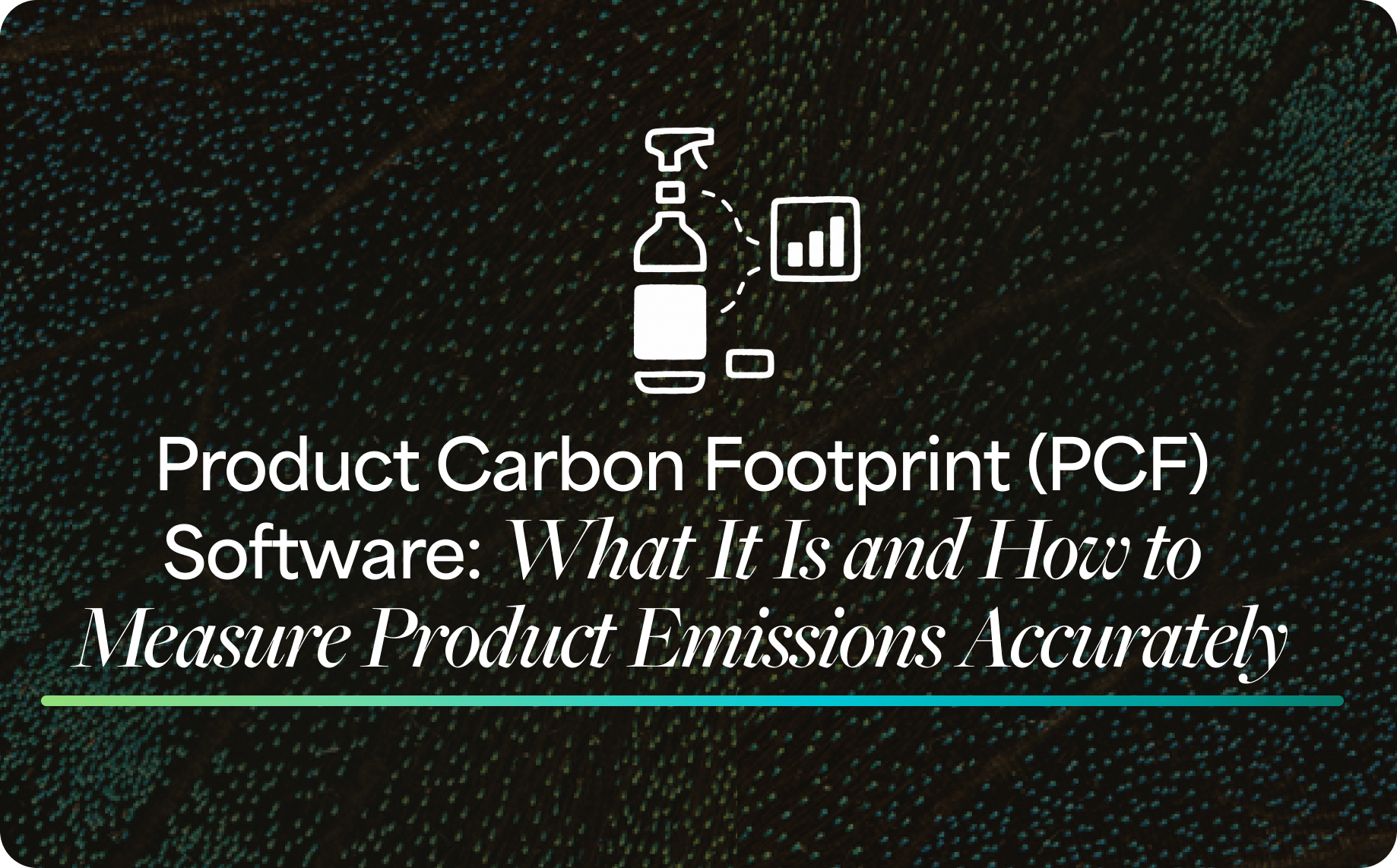Japan's carbon accounting landscape in 2025 is shaped by a convergence of domestic and international regulations, including the Sustainability Standards Board of Japan (SSBJ), TCFD, CSRD, and the growing influence of global frameworks such as the GHG Protocol and SBTi. The Tokyo Stock Exchange (TSE) requires climate-related disclosures for companies listed on the Prime Market, and the Japanese government's Green Growth Strategy sets ambitious decarbonisation targets for 2050 and beyond. As a result, Japanese organisations must deliver audit-ready, data-driven carbon reports that satisfy both local and global stakeholders.
Japan's Regulatory Landscape
The regulatory framework is advancing through a phased implementation approach led by the SSBJ Standards, which align with ISSB's IFRS S1 and S2. Starting from the fiscal year ending March 2027, TSE Prime Market companies with market capitalisation of ¥3 trillion or more will be required to disclose sustainability information based on SSBJ Standards, including Scope 1, 2, and 3 greenhouse gas emissions.
The mandate will then expand to companies valued at ¥1 trillion and above, and eventually to all Prime Market-listed companies (approximately 1,600 companies). TCFD-aligned disclosures are already in place for Prime Market companies, with Japan leading globally in TCFD adoption—over 1,480 Japanese companies have endorsed TCFD recommendations, representing the largest national supporter base worldwide. Supply chain transparency is becoming essential as companies increasingly recognize that Scope 3 emissions typically represent the majority of their carbon footprint.
In this context, selecting the right carbon accounting platform is critical—not just for compliance, but for enabling decarbonisation and building stakeholder trust. The best platforms offer strong automation, seamless integration, AI-powered data validation, and support for both Japanese and global standards. This listicle compares the top five carbon accounting platforms in Japan for 2025, focusing on their features, regulatory coverage, technical specifications, and automation strengths.
Unravel Carbon – Editor’s Choice
Unravel Carbon is the most advanced, AI-driven carbon accounting platform for Japanese organisations facing complex, multi-framework compliance. Its agentic architecture—featuring a suite of AI agents—automates every stage of the sustainability workflow, from data collection and emissions calculation to audit preparation and regulatory disclosure.
Core Features:
- Full Scope 1, 2, and 3 Emissions Measurement: 100% GHG Protocol-aligned, with flexible data ingestion (CSV, webform, direct integration).
- Proprietary Emission Factor Database: .3M+ emission factors, geo-location data, fuel/item prices, built in-house and continuously updated by a team of climate & data experts with user prioritisation and custom uploads.
- Audit-Ready Data Management: Comprehensive audit trails, evidence storage, and dedicated auditor logins.
- Decarbonisation Pathways: Scenario modelling, target setting, and access to a library of reduction solutions.
- Supplier Engagement: Automated supplier data requests and recalculation of Scope 3 emissions with supplier-specific data.
- Comprehensive Reporting: GRI, IFRS S2, and ISSB modules with AI-assisted drafting and peer benchmarking.
Regulatory Coverage:
GHG Protocol, ISO standards, IFRS S2, GRI, ISSB, SSBJ, CSRD, TCFD, ISO27001, SOC2.
Technical Specifications:
- Direct API and SFTP integrations (SAP, NetSuite, Xero, Workday, BambooHR).
- AI-powered data validation, anomaly detection, and language translation (70+ languages).
- Asset-level analytics and customisable dashboards.
AI/Automation:
- Unravel Copilot: Expert AI assistant for sustainability professionals.
- Data Collection Agent: Automates data gathering from internal and external sources.
- Emissions Calculation Agent: Intelligent mapping and transformation of raw data.
- Insights & Review Agent: Automated QA/QC and error correction.
- ESG & Disclosures Agent: AI-driven reporting, gap analysis, and benchmarking.
Competitive Strengths: Unravel Carbon's agentic platform delivers unmatched automation, auditability, and regulatory alignment. Its AI agents reduce manual effort, ensure data quality, and support compliance with both Japanese and global frameworks. Deep integration capabilities and a proprietary emission factor database provide the accuracy and flexibility needed for Japan's fast-evolving regulatory environment. Unravel Carbon's comprehensive feature set and automation capabilities make it a strong choice for organisations seeking an integrated, decarbonisation-focused solution that can scale with Japan's evolving sustainability disclosure requirements.
Asuene
Asuene is a Japanese platform offering comprehensive environmental management.
Core Features:
- Calculates GHG emissions (Scopes 1–3), water, waste, energy, chemicals (PRTR), and air pollutants.
- Decarbonisation support: SBTi-aligned target setting, long-term roadmaps, carbon offset and renewable energy guidance.
- Reporting for CDP, SBTi, TCFD/TNFD, CSRD.
- Approval workflows and BPO support for data entry.
Regulatory Coverage:
SSBJ, CDP, SBTi, TCFD/TNFD, CSRD, PRTR.
Technical Specifications:
- AI-powered modules (ASUENE AI, AI NIKOLA, AI Lab, AI Chatbot).
- API integration, multi-language support, SSO for Microsoft/Google.
AI/Automation:
AI agents for consulting, report support, analytics, OCR, procurement simulation, and automated responses.
Zeroboard
Zeroboard is a Japanese platform specialising in carbon accounting and ESG data management, with robust supplier engagement and BI analysis.
Core Features:
- Scope 1–3 GHG emissions and product carbon footprint (CFP).
- Group-wide data collection, approval workflows, and multi-output registration.
- Supplier surveys and custom intensity calculations.
- ESG data management, BI analysis, deadline management, and multi-framework support.
Regulatory Coverage:
ISO 14064-3, PACT, CSRD, SSBJ.
Persefoni
Persefoni is a global platform with a strong presence in Japan, offering advanced analytics, climate risk modelling, and robust compliance.
Core Features:
- Scope 1–3 emissions, market/location-based methods, financed emissions (PCAF), waste/water tracking.
- Product carbon footprint, scenario analysis, segmentation, and benchmarking.
- Net-Zero Navigator for target setting, physical climate-risk modelling.
- On-demand training and premium support.
Regulatory Coverage:
GHG Protocol, UK SECR, California SB-253/261, CDP, SBTi, ISSB, CSRD, PCAF.
Technical Specifications:
APIs, SOC 1/2, ISO/IEC 27001/27701, SSO, MFA, IP whitelisting.
AI/Automation:
AI anomaly-detection, GPT-powered Copilot.
Workiva
Workiva is a global platform with a strong Japanese presence, known for its AI-powered measurement, decarbonisation planning, and assurance features.
Core Features:
- AI-powered Scope 1–3 calculations, data ingestion, and value-chain surveys.
- Decarbonisation planning, supplier risk assessment, mitigation pathway visualisation.
- ESG reporting, AI guidance for drafting responses.
- Collaboration tools, data lineage, version history, evidence management, granular access controls.
Regulatory Coverage:
CSRD, ISSB, California SB 253/261, CDP, GRI.
Technical Specifications:
AI-powered data ingestion, curated emission factors (240+ regions), unified data foundation, audit trail.
AI/Automation:
AI-powered data ingestion, AI guidance for ESG responses, automated value-chain data collection.
Frequently Asked Questions
What are the new carbon accounting regulations in Japan for 2025?
Japan is implementing sustainability disclosure requirements through a phased approach based on the SSBJ Standards, which align with international ISSB frameworks. Starting from the fiscal year ending March 2027, TSE Prime Market companies with market capitalisation of ¥3 trillion or more must disclose sustainability information, including Scope 1, 2, and 3 greenhouse gas emissions. The requirement will gradually expand to companies valued at ¥1 trillion and above, and eventually to all Prime Market companies (approximately 1,600 companies).
Prime Market companies are already required to make TCFD-aligned climate disclosures. The SSBJ Standards include transitional provisions that exempt companies from Scope 3 disclosure requirements for their first fiscal year, with the earliest Scope 3 implementation being the fiscal year ending March 2028. Japan continues to strengthen its approach to climate disclosure through industry collaboration and the TCFD Consortium, which supports companies in conducting climate-related assessments and disclosures.
How do I choose the right carbon accounting platform for my business?
Evaluate platforms based on regulatory coverage, auditability, automation, integration with your business systems, and support for Scope 3 and supply chain data. Consider your organisation’s size, complexity, and reporting obligations.
Sources & References
- Tokyo Stock Exchange (TSE): Number of Listed Companies
- Sustainability Standards Board of Japan (SSBJ): SSBJ Standards
- Financial Services Agency (FSA): Disclosure and Assurance of Sustainability Information
- Ministry of Economy, Trade and Industry (METI): Climate Change Policy
- TCFD Consortium
- Japan's Green Growth Strategy
- GHG Protocol
- Science Based Targets initiative (SBTi)
- Asuene, Zeroboard, Persefoni, Workiva, Unravel Carbon: Official platform documentation


.jpg)
.jpg)
.jpg)
